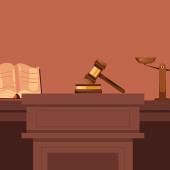
Raj Daniels once introduced himself at a networking meeting by talking about his interest in "slow eating." I first thought he was joking, but he was making a point: be purposeful. Fully absorb the thing you are engaged in, including eating. Using this principle, Raj has immersed himself in developing business start-ups for over 20 years. He is well-known in Dallas, Texas as a business evangelist and community builder. In his immediate past role, he served as CEO of the OpenTime software platform.
Wishing to share his philosophy, he wrote For You, From Me, a book that provides a year's worth of reminders about what's important and common sense. I recently talked with him about it and how litigators can benefit from being more mindful.
Noah Webster: The App Store identified mental health and mindfulness as a breakout trend for apps in 2017. Why is this popular now?
Raj Daniels: Mindfulness has become trendy in the past few years, and I’m glad that is has. I believe it’s because of the overwhelming stress and demands that people, including attorneys, are experiencing due to an over connected world.
The observation about apps is interesting. There are an increasing number of apps and devices that are being sold as gateways and fixes for mindfulness. But these are the things causing the stress in the first place.
Webster: So what exactly is mindfulness?
Daniels: My belief is that mindfulness is the ability to be present with a person or task in the moment. Being able to engage — to the best of your ability — with what you are doing. It could be a conversation, reading a book, writing, playing a game, or working. Whatever it is, you are present.
Each one of us has our limitations. Our levels of ability to engage will be different. But I believe each person has the capacity to improve. Mindfulness does not mean “distraction free.” It means you can decide when to step away or block out, so you can be more present.
Webster: What is your approach to increasing mindfulness?
Daniels: My personal approach to being mindful is a combination of small things.
- Meditation. I started meditating around 2001, slowly at first. Now I have an established daily practice.
- Do not disturb. Putting my phone on do not disturb during meetings allows me to focus on people.
- Use a watch. Wearing an old school/analog watch, so I don’t need my phone to check the time.
- Choose when to tweet and chat. Having no social media or notifications on my phone, except for SMS that I use with family and close friends. Reading articles on my laptop in full screen mode and with Mercury Reader to block out other activity.
- Family. Leaving my phone in my office at the start and end of each day so that I can fully engage with my wife and daughters.
Webster: Thanks for those tips. They align with litigator best practices in a variety of ways. For instance, some litigators will use an analog watch to avoid looking pretentious in front of a jury. How does mindfulness apply to business and litigating?
Daniels: Mindfulness training can increase productivity. The ability to focus on the task at hand without distractions allows for greater efficiency. In his book Deep Work, Cal Newport speaks about attention residue and the implications it has on productivity. Practicing mindfulness strengthens concentration ability, which can then allow you to focus for greater amounts of time.
Mindfulness also helps with interpersonal relationships in business. The ability to fully engage with co-workers and customers without distraction allows for fuller and richer relationships.
Webster: The first page of your book suggests that you should “Inspire Someone.” After reading it, I wrote an email to my new team that included a dash of inspiration, which was well received. In pursuing mindfulness in business, can you expect that sort of direct impact all the time or are the effects indirect?
Daniels: First, thank you for sending that message to your team, and I’m glad that it was well received.
Here is how I think about it. You don’t send the message expecting an impact; you send the message because you know and feel that it’s the right thing to do. You are connecting with another human.
I often have a person come to mind during meditation, and I will send them an email or message just saying that I’m thinking about them. No agenda. No reply needed. But things happen. People do respond, and it’s always with a thank you.
Webster: Some of the best litigators I’ve met, when at trial, require their teams to stop work for a certain amount of time each night. This helps everyone have a clear head during the day. Can you suggest other tips for litigators at trial who are under pressure?
Daniels: I strongly suggest they learn a meditation or breathing practice. Consider it this way: As a kid in school, I would watch the clock at 3:59. The second hand would look as if it was moving backwards. I was just dying, waiting for the 4:00 bell to ring. Yet at recess, I felt that same single minute fly by.
That is, in my experience, meditation allows you to add more depth and space to the time you have. It trains you to feel as though you have more time when under pressure. How valuable is that in the courtroom?
Webster: The day-to-day pressures of litigating are different from trial pressures. Should a litigator’s approach to mindfulness shift depending on the circumstances?
Daniels: No. I believe that mindfulness is foundational; a keystone habit that once developed can be applied to any area of life. When you work on yourself, your entire environment changes, including your worldview and how you see others. The impact is dramatic.
For more information, check out Raj’s book or his meditation website. If you like them, endorse him for “Slow Eating” on LinkedIn.




